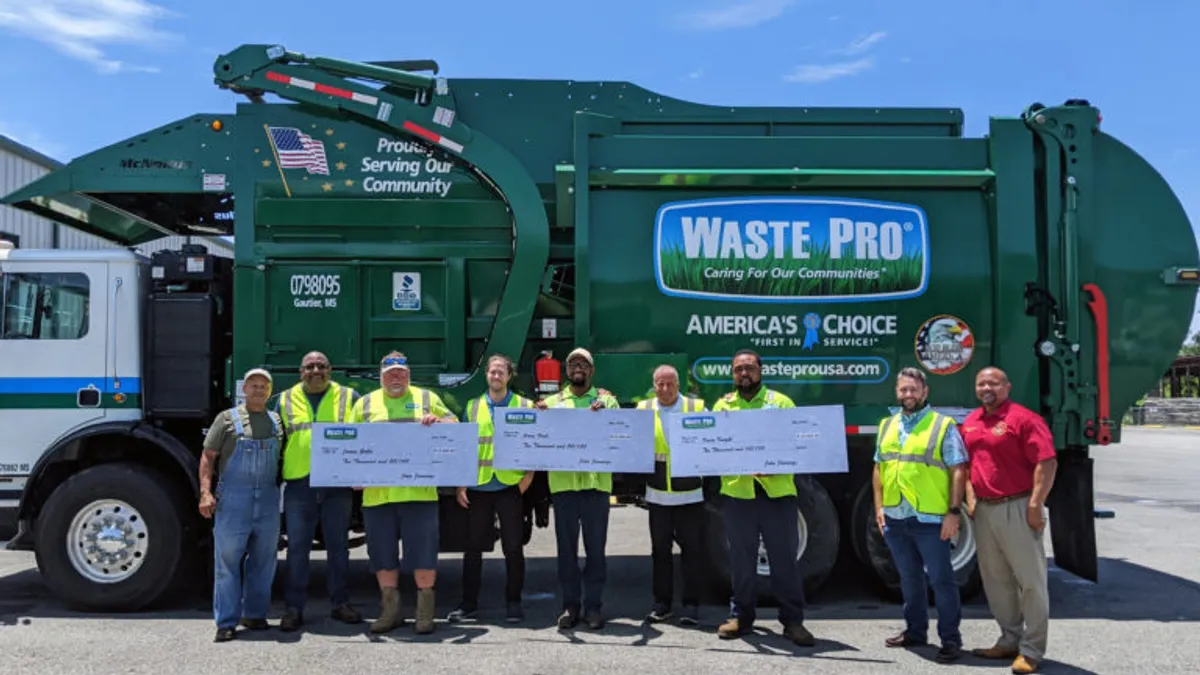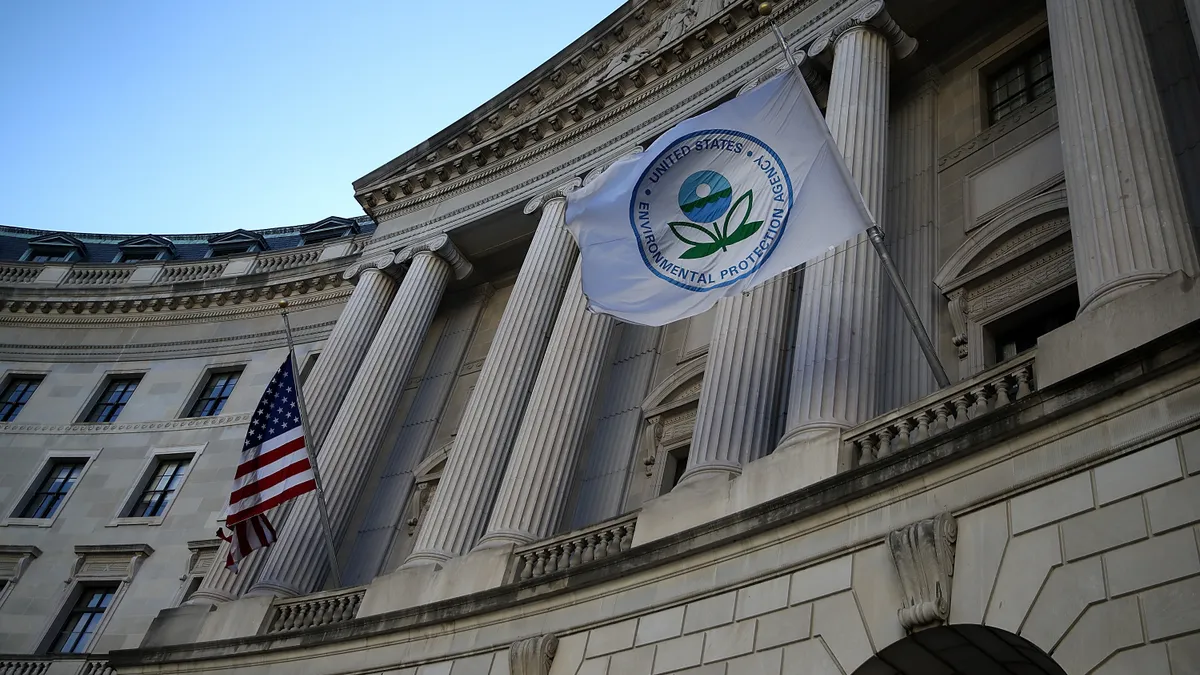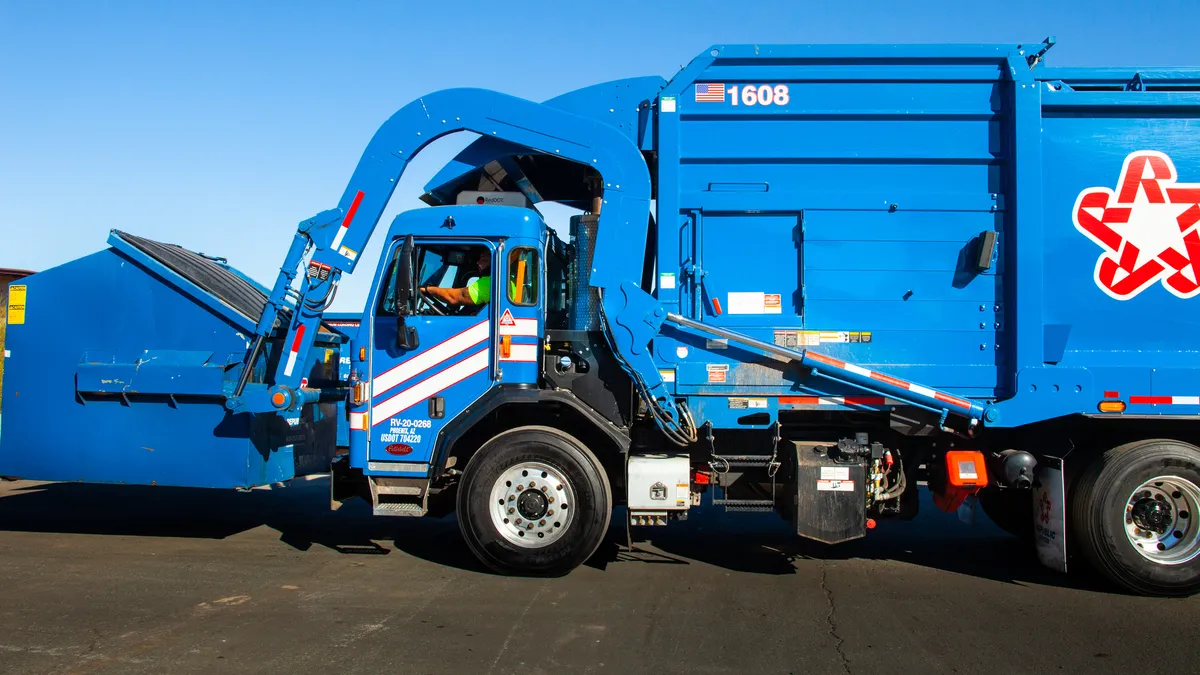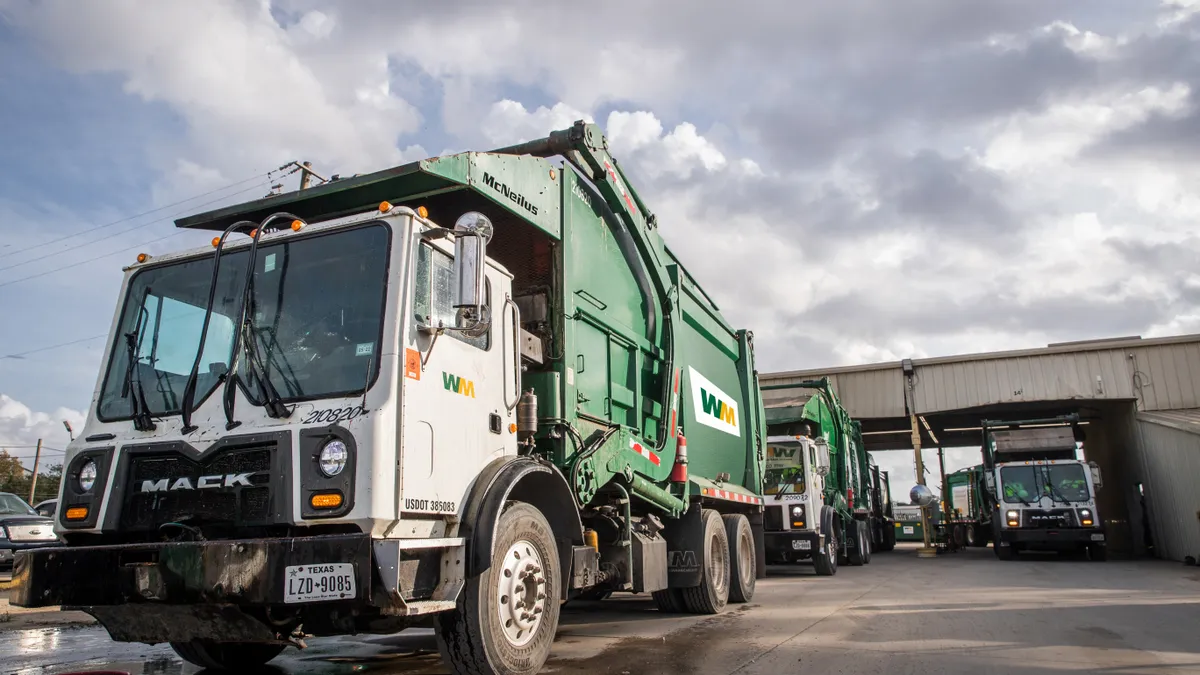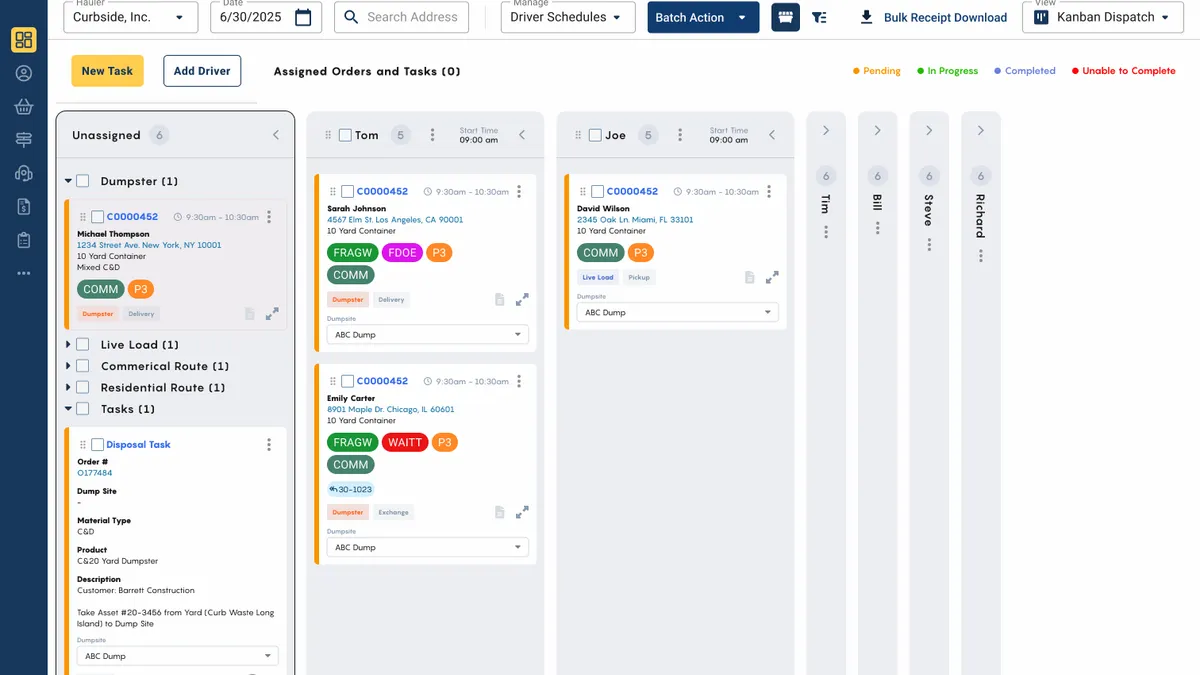Recruiting and retaining a collection workforce is a never-ending focus for large waste and recycling employers. Waste Pro is seeing results from a combination of employee appreciation programs, creative scheduling in certain markets and a focus on hiring women, among other efforts.
The Florida-based private company, which has been operating for more than 20 years, has employees across a growing footprint in 10 Southeast states. Waste Pro recently announced that frontline employees collectively earned $1.03 million in safety awards during 2022. The award’s requirements are three years without any at-fault incidents or injuries; plus demonstrating excellent customer service, maintaining an organized truck and keeping a good attendance record. Last year, 91 drivers earned $10,000 each and 24 helpers earned $5,000 each. The company has awarded approximately $7.4 million since the program was created.
Shannon Early, Waste Pro’s vice president of human resources, recently spoke with Waste Dive about how these safety awards and other initiatives factor into the company’s workforce levels.
The following interview has been edited for length and clarity.
Some people think maybe it's getting a little easier to recruit and retain employees than it has been the last few years. What does that look like for Waste Pro?
I believe it is getting easier. It's easy for us to find employees. However, it's difficult to find individuals that come from the waste industry with experience compared to 10 years ago. It's also different in the South than it is up in the Northeast, where it's along the lines of, “my father did this, my grandfather did this.” It's not necessarily that way in Florida, because we're very hospitality-driven. What we're finding is that when we bring people on board we have to teach them the industry, and I think that is a bigger challenge. I will say our turnover is down, our retention is up and that is a positive way to begin the year.
Do you have a sense of whether the company’s safety awards and employee appreciation efforts are helping improve retention?
One of our biggest drivers most recently is the changes we made to employee pay rates. We made some increases across the board across many of our divisions and that was a significant change for us. And we've continued to refine our benefits program. So unlike a lot of companies — not just in the waste industry but in general — we have been able to keep the employee cost of benefits flat or have slight increases, but improving the overall benefit coverage that an employee receives.
I can tell you when an employee is coming up on that third year [for their safety award], it is extremely important to them. A lot of people boast.
I have one employee out of Atlanta who calls me every year, and says “I got it” and he will [be eligible] for his fourth one. I told him I would come up to Atlanta for it. It’s a matter of pride for employees to say that they received the safety bonus, whether you're a driver or a helper. It's a competition and the families, especially the wives, are very appreciative of it. A lot of the family shows up for the celebrations that we have and they provide a lot of encouragement. We have one individual down in Fort Myers, he's had it five times.
I’ve been hearing lately about Waste Pro experimenting with four-day workweeks. How has that been going in certain markets?
The four-day workweek is for drivers and helpers. It's across all of Louisiana, which is exciting. And then the Fort Pierce location down in south Florida, they're converting to a four-day workweek in February. In Atlanta, I was actually just talking to the division manager because that's something she wants to get to. She's been rotating people on a four-day workweek and as soon as her staffing levels are where she wants them to be she will make that conversion.
What are the factors involved in deciding whether this makes sense in certain markets?
It is based on your routes and how you structure the routes to accomplish that four-day workweek. That would have to be completed at the division level. In Louisiana when they made this change the regional VP went in, looked at everybody's rates of pay, wanted to make sure that everyone would stay whole and also get a light increase. He was able to do that and they made more money working less days.
Are you seeing this as an attractive element in the recruitment process?
The drivers and helpers are very excited. Down in Fort Pierce what they're most excited about is the fact that — and these are individuals who are long in the industry — “I get a chance to spend more time with my family or just have a day to myself.” This is an industry where people typically do work very hard. If it allows them to take care of their lives on that extra day off, I think it does help from a standpoint of employees not being so fatigued, having better rest. We have a lot of fishermen in the company and hunters. So they get that one extra day where they get to indulge in their hobbies and sports.
I'm excited to see us continue to grow in this area. Because I do believe that our employees who participate will just love it. And I think their families will love it as well.
How is Waste Pro working to grow the role of women in its workforce, and where do those levels stand today?
Going back to Louisiana, 38% of their drivers and helpers are female. And it's highest in Baton Rouge, where it's 41%. New Orleans is at 22%.
So we're definitely beginning to see a trend where we have more females who are interested in our industry. They recognize that this is a viable career option, and it can be one that helps sustain and support their families. It's fun to see our numbers grow. I think our challenge is going to be to continue to find ways to recruit more females to our workforce and let them see what we're all about.
[Another factor] is the change from a rear-load truck to an automated truck, or even a roll-off and front load. We have some females who are being promoted to those positions. They may not necessarily want to get out — and they don't want to be a helper, that's a very difficult job — but they'd love to drive the trucks. I rode with an individual years ago who said, “I love my job. This is the best job I've ever had because I am my own boss, and I am king of the road in my big truck.” I could buy into that.
What worked for Waste Pro that you think others could learn from in terms of these recruitment efforts? For example, I’ve heard that school bus drivers have been a source of drivers for the company.
A big part is helping women understand the industry, helping them understand what we do as a company. It is a career that can allow them to provide for their families and allows them to be home in the evening, allows them to have weekends with their family. I think the biggest piece we need to focus on is educating. I was talking to a division manager before in Atlanta, and we were talking about the same topic. She said the biggest piece is getting the word out that this is an opportunity for people to have a successful and long-lasting career.
We get a lot of bus drivers, school bus drivers as well as city bus drivers. We get people from Amazon and they may not have a [commercial drivers’ license], but they will go out and get their CDL or get their permit. Then we can send them to our CDL school that we have here and that is a significant benefit to them and to us.
How is Waste Pro working to show a career path for frontline employees?
One of the things we’re working on is being able to show that career path. If you come in as a helper, or a driver, where could you go? We had former helpers who are running this company today. When you look at it the only obstacle is yourself because there's so much growth in the company. We have so many different divisions.
I did not come from this industry. When I started 12 years ago it took me a while to get used to it. I love it. This is the most fun I've ever had in a job. I can understand why people keep coming back to the industry and don't leave because it is so diverse and there's so much to it. I feel like I've only scratched the surface. Every day I learn something new and I want all of our employees to feel like that.


